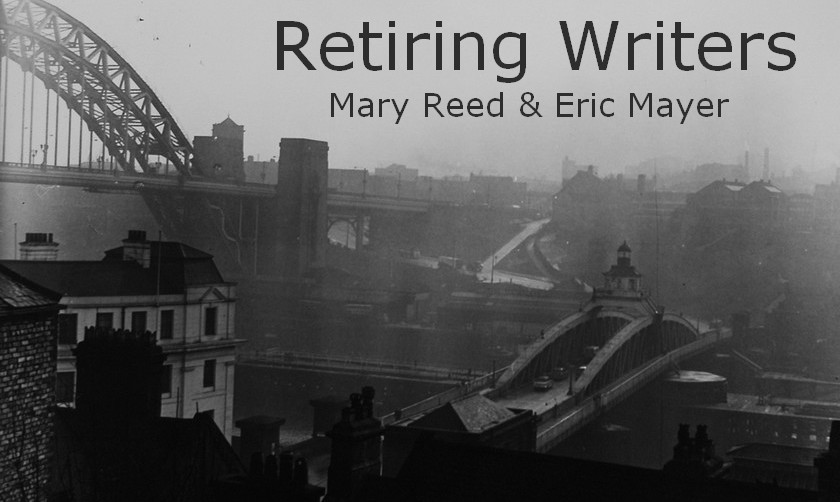by Mary
We've never written a legal thriller. However, it could well be said Five For Silver took us as close to contributing to that particular sub-genre as we've ever been, since the focus of the
plot revolves around our Lord Chamberlain's labours to locate witnesses to a wealthy man's will.
Given our protagonist's position and power, this would seem an easy task for him to accomplish
but it was one of the most difficult he has had to tackle, given this entry in the series is set during the Justinianic plague, which has been estimated as causing between five and ten thousand deaths a day. Nobody was safe and as a result Constantinople became a ghost city, largely deserted between the mounting number of deaths and the flight of residents deserting it for what was regarded as the safer countryside. The pandemic played no favourites -- Justinian himself was infected but managed to survive its deadly touch.
Since a will is the key to the plot, our preliminary research necessarily involved taking a plunge into Justinian's Institutes, a fascinating collection of laws. Glancing through it, certain situations give the modern reader pause. For example, it was illegal to engage in abusive language in an attempt to cause a crowd to form. Another provision concerned what would nowadays be considered stalking, in this instance defined as "following a matron, or a young boy or girl below the age of puberty", Meanwhile, writers faced punishment for "writing, composing, or publishing defamatory prose or verse." Compensation due to an injured party depended upon their social position, so as a result an aristocrat was entitled to greater pecuniary compensation than "a mere stranger, or to a person of low condition".
We'd never think of Peter, John's elderly servant and like his master a former slave, as one of
low condition although doubtless he would have been considered such -- if he was thought of at
all -- during his period of enslavement.
It is in fact Peter whose vision of an angel visiting him to announce "Gregory. Murder. Justice" starts the engine of the plot after John undertakes to find out if Gregory, Peter's oldest friend, has indeed been murdered. This in turn leads to John's need to search for witnesses to a deathbed will made by Nereus, a superstitious and wealthy shipper, in order to disinherit his wastrel son Triton.
But as we all know, where there's a will, there's often trouble.
Another dip into the Institutes provided most useful information. Oral wills were valid, provided the intent to make one and its provisions were declared before an assembly of seven witnesses. Slaves, lunatics, and those with certain disabilities or who were under the age of puberty were among those not permitted to serve in this capacity. Women were also barred
from witnessing a will.
The task presented to John seems impossible given Peter, despite his long friendship with
Gregory, does not know where the latter lived or his occupation. However, when John's friend
Anatolius turns out to be one of the last to see Gregory alive, this sliver of information, scanty though it is, serves to enable John to begin tracing Gregory's movements.
As John pursues his time-consuming and increasingly urgent daisy chain of finding and interviewing witnesses, he is ever aware the plague could carry off any or all of them at any moment, not to mention the distinct possibility of one or more having fled the increasingly deserted city. As he discovers, there were indeed seven men present when Nereus made his will, a motley band who by a combination of circumstances happened to be in the right place at the right time to serve as witnesses.
The septet in question included Peter's friend Gregory as well as a seller of dodgy
antiquities, a morbidly lugubrious court poet, the assistant to Nereus' house steward, a holy fool notorious for dancing in the street with the dead, a rustic carter, and an archdeacon.
The Institutes declares "The precepts of the law are these: to live honestly, to injure no one, and to give every man his due" and when John's winding path finally leads him to the culprit, he administers justice both terrible and appropriate -- without shedding blood.
